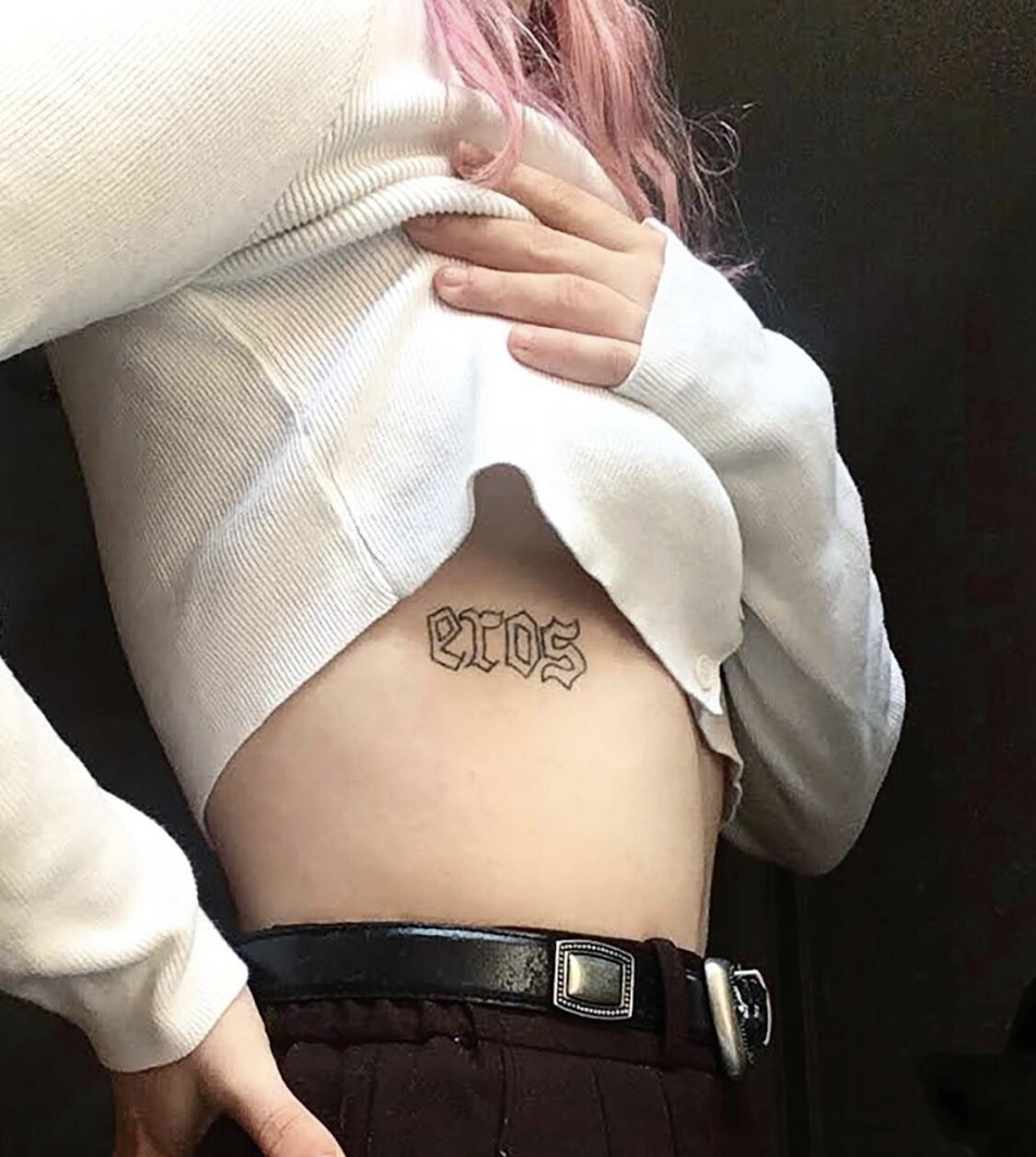Indie Ink
Lately, I can’t stop thinking about the block-lettered “YOLO” on Zac Efron’s praying right hand. Even as the chaos of the pandemic and pending presidential election swirls around me, I’m distracted by the itch to get a new tattoo— or three. I joke to friends that it’s just to feel something, but maybe I’m not kidding. I worry I’m missing out on aspects of my college experience because of COVID, so I feel compelled to indulge my youth however I can. Over “quarantine”, I even entertained the idea of learning to hand-poke myself, since tattoo parlors were closed, and exiting lockdown with a souvenir sleeve—prison style. When I returned to Boston, I realized I wasn’t the only one on a tattoo kick.
Marissa Cardenas, a senior VMA major, received an overwhelming response when she posted an Instagram story (@onealaskanbullworm) asking her followers if they’d be interested in stick 'n' poke tattoos by her. (I was one of the responses, promptly DMing “Literally please,” to which she replied, “brother lets gooo.”) Cardenas learned hand-poking over a year before her friends pushed her to sell tattoos this semester.
“They told me ‘Yo you have a talent,’ and I was like ‘Yo you’re kind of right’,” says Cardenas. She was shocked to see such a high demand off the bat. “I feel like now is the best time to take the time to do something like that and experiment because everyone wants tattoos. And for cheap too.”
Stick 'n' poke is non-electronic and uses a single needle dipped in ink to dot the skin, often done in a doodle-y, organic style. Similar hand techniques are an ancient art form in many cultures. Now it’s a staple on college campuses.
Photo by Erina McSweeney
Cardenas practiced on oranges, watched YouTube videos, and found her groove through trial and error, though she’s never inked herself. Cardenas’s weekends are busy with appointments she plucks from her waitlist— I’m patiently waiting my turn. Her first flash sheet has been popular, especially the frog doodle that reminds her of an Animal Crossing character, though she does many custom tattoos. Stick-and-poke, however, is a more timely process, as the dots of ink need to be layered to create solid lines, so appointments could span hours, as opposed to tattoos done with machines.
“Right now it's very relaxing and fun,” Cardenas says. “It's nice to meet new people and talk to people that are on campus that I never met before. It's just a cool personal experience.”
My attention was caught again in September when I saw a slew of posts from Emersonians boasting fresh machine tattoos by senior VMA major Trey Glickman. Glickman runs his tattoo business over Instagram (@treydoestats), where appointments are booked in the DM.
“I realized that my appointment bookings are so correlated with the second I post,” Glickman says. “So I ask people if they're going to take artsy photos to send them to me, and I'll post that because those photos get way more traction.”
Glickman’s a graphic designer who’s created logos and posters for Emerson students in the past, though it was “the most draining shit.” Because of his background, tattooing is a natural new venture. “This is the first thing that's making me a full living,” he says. In just over a month since students returned to campus, Glickman’s given 50 tattoos and counting.
He taught himself over quarantine with a machine he ordered online and started on his leg, and later practiced on his friends and family. When he returned to Boston his business started taking off. “If I mess up, it's like you're paying 50 bucks for a tattoo in some kids' basement,” Glickman says. “And also, I make it cheaper so I have more clients. I might do a bigger, more expensive design and charge less because I know it's important for Instagram.”
“I think tattoos are more in with girls nowadays than guys for some reason,” notes Glickman, who’s mostly tattooed women. “There are more trends. The other thing I've been hearing is a lot of girls get very uncomfortable going into tattoo studios because it's mostly men who are obnoxious and hyper masculine.”
It makes sense demand is high for amatuear tattoos because it’s a more personal experience, friendlier price, and, considering both Cardenas and Glickman take proper Covid-19 precautions from their homes, safer than a public studio. Sure, you risk low quality, but if you’re already in the market for an impulsive body modification, why not add a little ink? You only live once after all.

